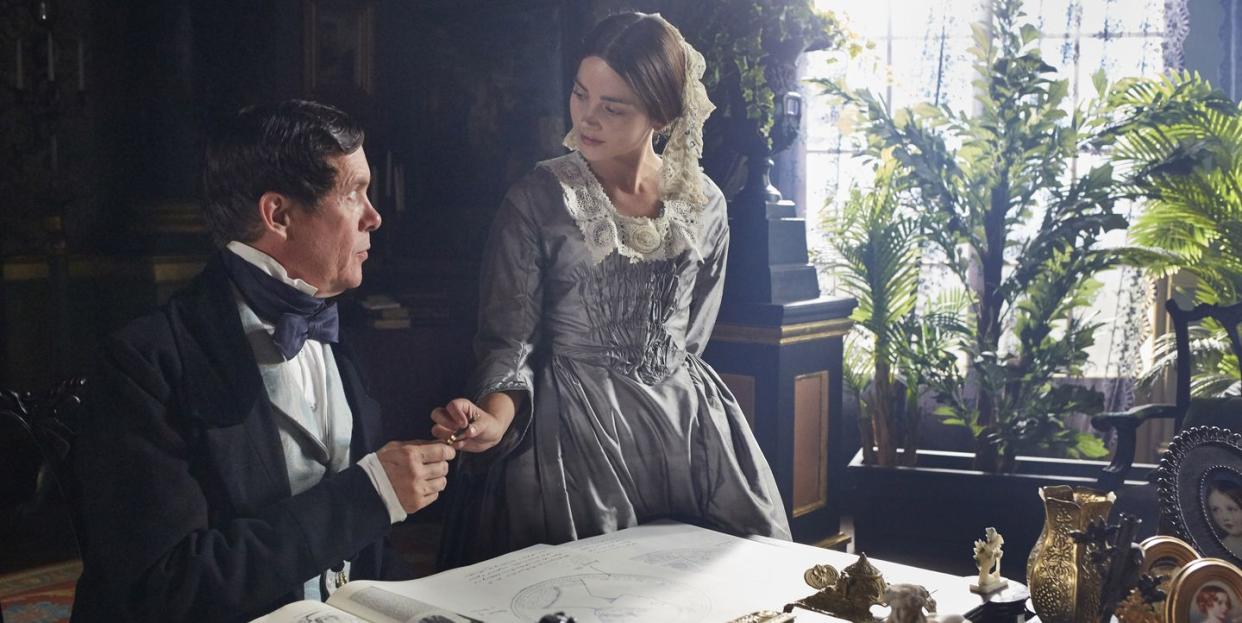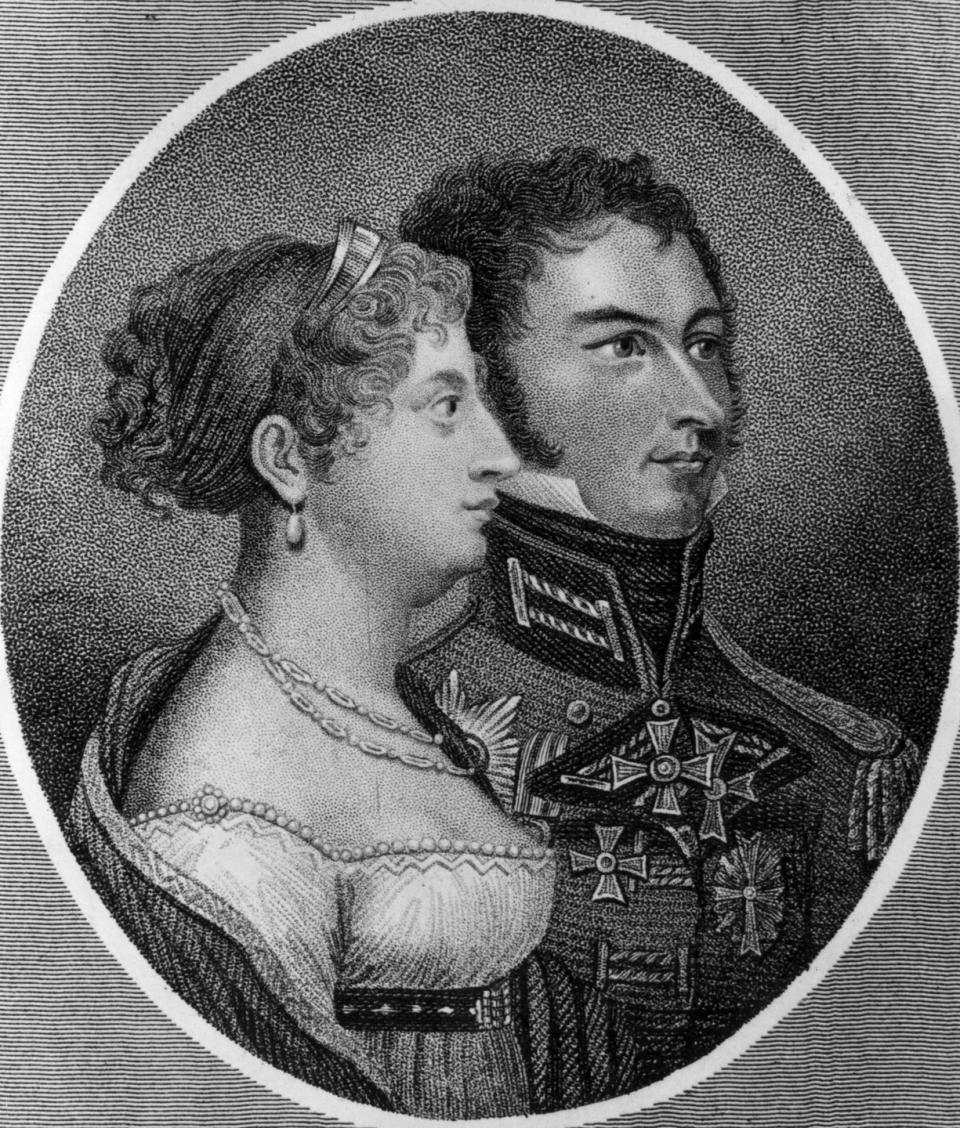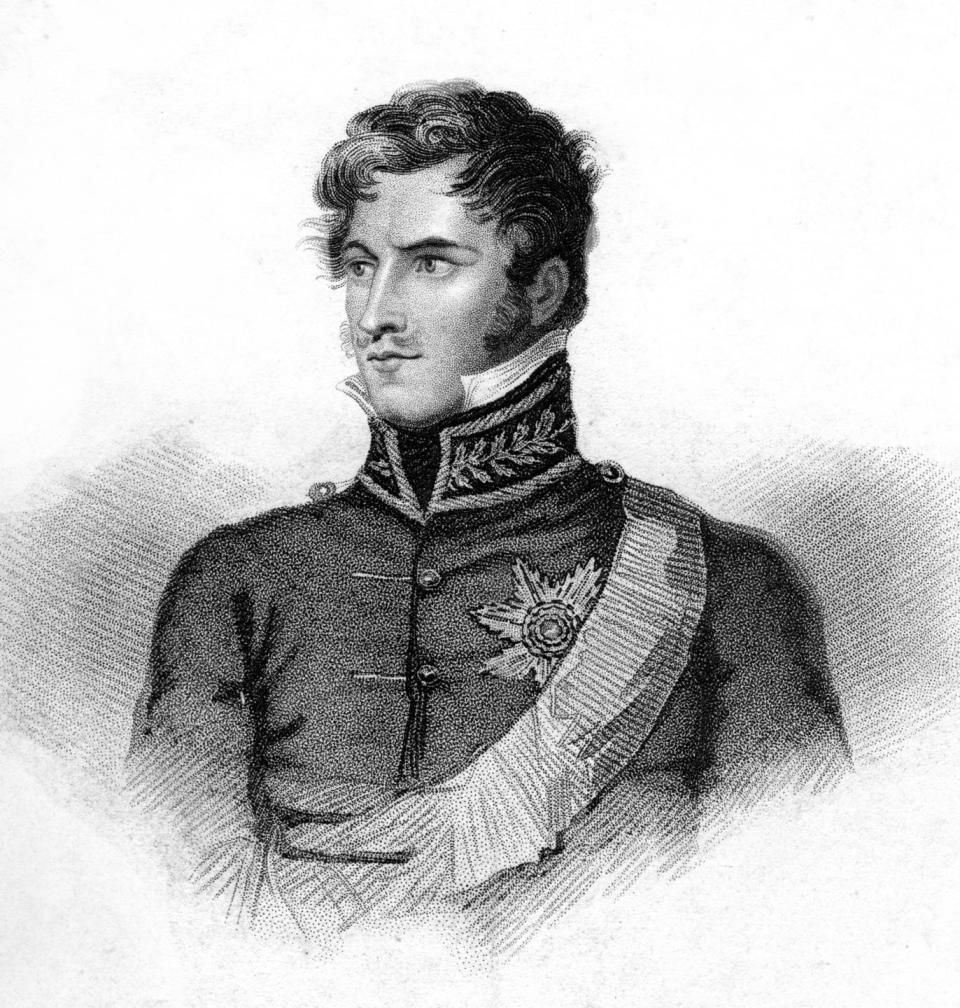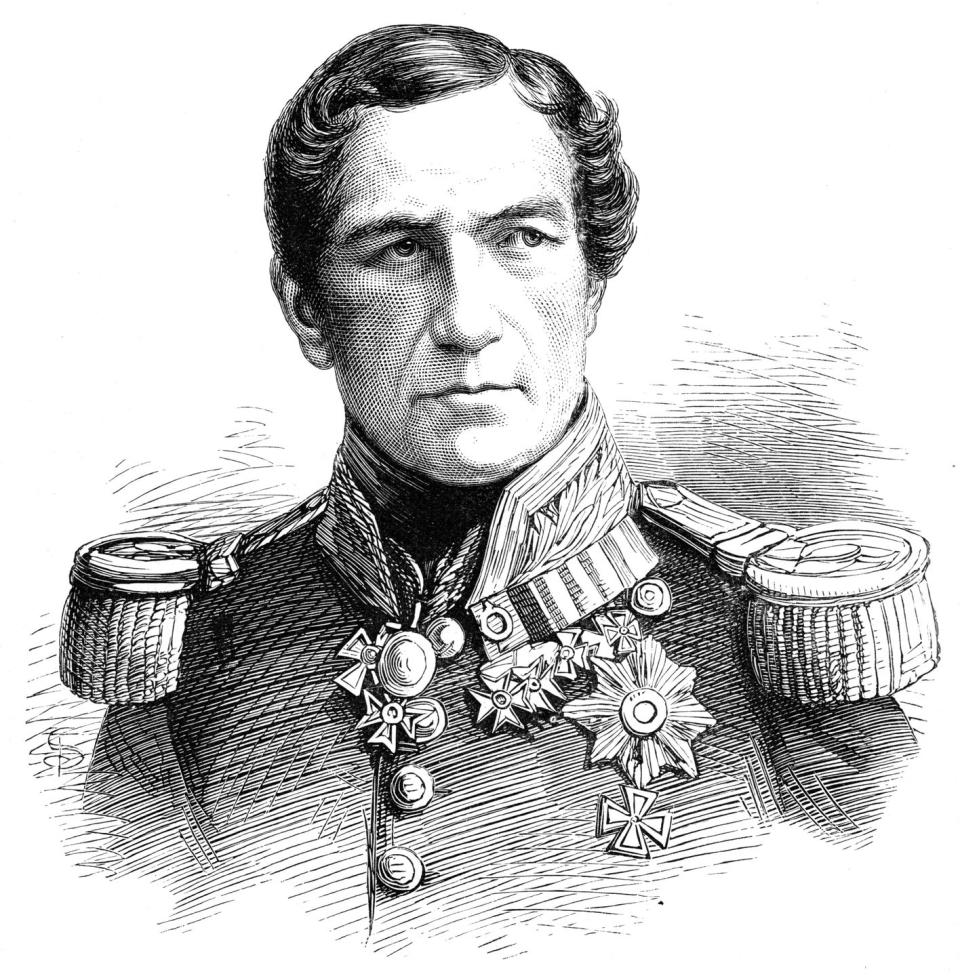Who Was Queen Victoria's Uncle, King Leopold I of Belgium?

Queen Victoria's uncle Leopold returns to the palace in season three of Victoria. Here's what he was like in real life.
Who was King Leopold I?
Born in Coburg, Germany on December 16, 1790, Leopold was not an obvious candidate to one day become a king. The fourth son of the Duke of Saxe-Coburg-Saalfeld, Leopold received a military education and even served as a page in the court of Napoleon, though he would go on to fight against the emperor as part of Tsar Alexander I's army when the French attempted to invade Russia. In 1815, after the end of the wars, Leopold settled in England, having been granted citizenship for his service.
Leopold's ties to England
Though England's King George III (better known, perhaps, as Mad King George) had fathered 15 legitimate children who, between them, provided him with 56 grandchildren, virtually none of these grandchildren were viable heirs to the throne due to the status of their legitimacy or religion (English law at the time prohibited Catholics, the spouses of Catholics, and their children from holding the throne.) Only the George III's eldest son, George IV, had any legally-recognized children who could serve as heir to the kingdom, and even he had just one-a daughter, named Charlotte. Princess Charlotte met and married Leopold in 1816, breaking off an engagement to the Prince of Orange to do so. Though the decision caused a minor scandal, Leopold was considered charming and quickly won over his royal in-laws.
Unfortunately, in 1817, just a year into their marriage, Princess Charlotte went into early labor with their first child, giving birth to a stillborn son and passing away from complications of childbirth soon after. Her death left Leopold heartbroken and England without an heir-presumptive.
Panicked at the possibility of the Hanover line losing the throne now that there was no direct heir, George IV, acting as regent for his father, and Parliament offered George III's sons a monetary incentive to produce a legitimate heir. As the princes (George IV included) were famous for racking up debts against their names, it was no great surprise when the king's fourth son, Prince Edward, Duke of Kent and Strathearn, quickly married Princess Victoria of Saxe-Coburg-Saalfeld and shortly thereafter conceived a child who would one day go on to rule England, a little girl, named Victoria.

Leopold I, King of the Belgians
Leopold continued to live in England for the next 14 years, until an accord between Great Britain, France, Russia, Prussia, and Austria officially established Belgium as a independent kingdom in 1830. After some debate, Leopold was offered the crown in 1831, and though he had been offered and refused the throne of the newly independent Greece just a year earlier, Leopold accepted, becoming the first king of Belgium.
On the throne, Leopold would become known as a great political mediator, establishing a stance of foreign neutrality and earning himself the nickname "Nestor of Europe," after the character in Homer's The Iliad. In 1832, he married Marie-Louise of Orléans, the daughter of King Louis Philippe I of France, and with her had four children (along with an additional two sons by his mistress.)

How is he related to Queen Victoria?
Though Leopold was married to Victoria's first cousin, Princess Charlotte, that's not how the two monarchs share a bloodline.
Princess Victoria of Saxe-Coburg-Saalfeld, who would go on to become the wife of King George III's son, Prince Edward, and the mother of Queen Victoria had another notable royal connection-she was the older sister to King Leopold I. It's through her that Leopold became the uncle of Britain's future monarch when little Victoria was born in 1819
Though he was busy ruling his own country, Leopold paid special attention to his royal niece and shared letters with her regularly, both before and after her ascent to the throne. A firm believer in the use of marriage ties to bind political allies, Leopold also brokered a number of marriages, most notably that between Victoria and his nephew, Prince Albert.

Was he really Prince Albert's father?
In Victoria's second season it was revealed that King Leopold might, in fact, have been Prince Albert's biological father-the product of a hidden liaison between Leopold and his sister-in-law; Albert's mother, Princess Louise of Saxe-Gotha-Altenburg. The reality is somewhat murkier.
Albert's paternity has been a source of historical debate for some time, due in part to his close resemblance to his mother, both physically and in temperament. That Louise's marriage to Albert's father, Ernst I, was unhappy was no secret-Ernst was known to have numerous lovers and reportedly fathered at least three illegitimate children, along with his legally-recognized sons Ernst II and Albert. The couple separated when Albert was 5 and divorced two years later-it's unclear if the Princess was ever allowed to see either of her children again.
Adding credence to the possibility of Albert not being Ernst's biological son is the fact that Louise herself took a lover, Alexander von Hanstein, at some point in the latter part of her marriage or soon after the divorce. However, many historians believe that the romance did not begin until after Louise's sons were born, tacitly eliminating him as a possibility for Albert's parentage (though she did go on to marry him in secret the year of her divorce.)
As for Leopold, the primary source of speculation toward him being Albert's father comes from a 1972 biography by David Duff. In it, Duff points out the fact that Leopold reportedly got along well with his sister-in-law, and that he paid a visit to the royal home in Coburg where his brother and Louise lived around the time that Albert would have been conceived. Leopold also remained close to Albert and his brother Ernst II as they were growing up and was both deeply loved and trusted by Albert, which some have argued suggests a more paternal interest.
It's a tenuous connection at best, but one that, like many historical theories, cannot be entirely ruled out.
('You Might Also Like',)

